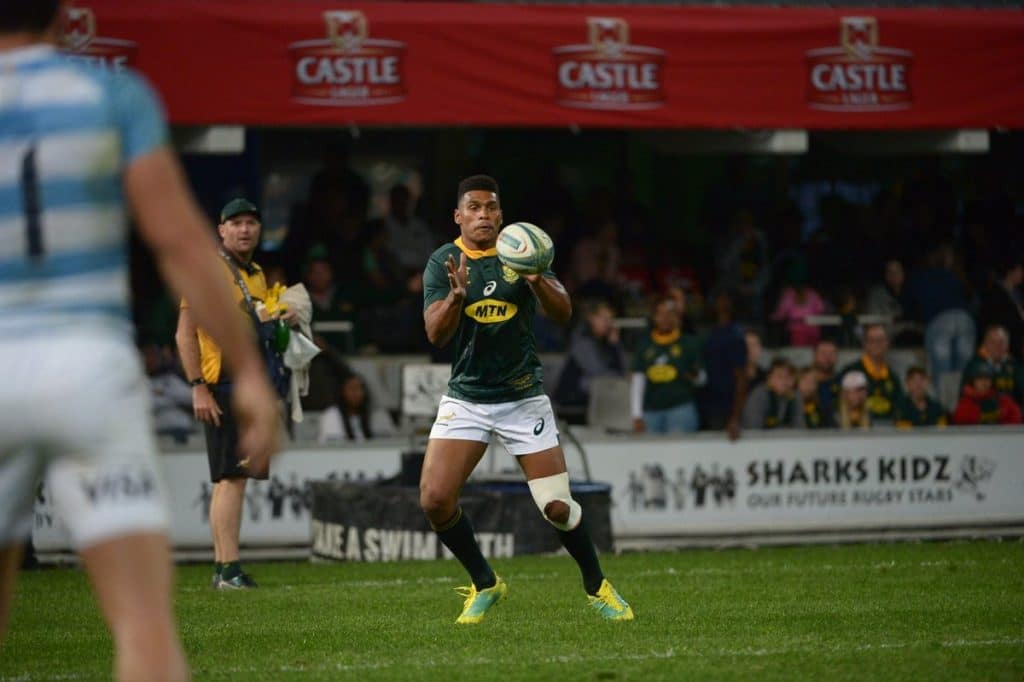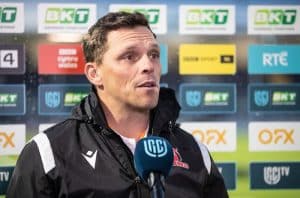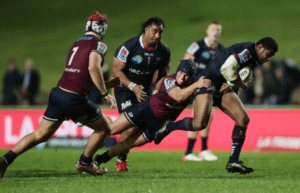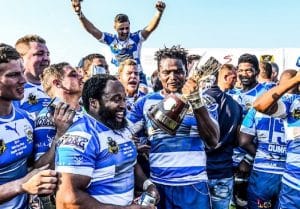The absence of several frontline backs will force Rassie Erasmus to experiment with new individuals and combinations with a view to the World Cup, writes JON CARDINELLI.
‘We could have won the Rugby Championship,’ a member of the Springbok management team told me when I travelled to the team’s base in Stellenbosch this past Friday.
The Boks feel that they could have won in Mendoza if not for a complacent attitude. They could have won in Brisbane if they had been more clinical at the death. And they certainly could have won against the All Blacks in Pretoria if not for those late defensive lapses.
They didn’t, though. They finished the tournament with a record of three wins in six games. After 10 Tests, Erasmus has guided the Boks to five victories.
It’s for this reason that the side will travel to Europe this November desperate for results. Come the end of the year, we will reflect on the Boks’ win in Wellington – the first victory on New Zealand soil in nine years – as something special. It will be harder to make an argument for progress, however, if the side loses three or four Tests in Europe and finishes 2018 with a success rate in the region of 40%.
ALSO READ: Three new caps in Bok squad
Would Erasmus play scrumhalf Faf de Klerk and fullback Willie le Roux – as he did across the Rugby Championship – if the England-based pair was available for all four Tests? I think that he would.
Would we see a veteran like Frans Steyn getting an extended run if an agreement could be reached between SA Rugby and Montpellier, and would Lukhanyo Am receive a further opportunity to make the No 13 jersey his own if he was fit? Yes, and yes.
Backing the strongest side available would improve the Boks’ chances of success across the Tests against France, Scotland and Wales (the first tour match against England falls outside the international window). It would allow less experienced players like De Klerk and Am to add to their respective cap-tallies, and ensure that the first-choice backline had ample opportunity to gel a year out from the World Cup.
Then again, perhaps we should be grateful that Erasmus has been thrown a few curve balls. As we’ve witnessed in previous World Cup tournaments, the team that starts the tournament is rarely the team that finishes it. Quality in depth can be the difference between winning the title and finishing as also-rans.
Erasmus won’t have access to De Klerk on this tour. We’re unlikely to see Am, the first choice No 13, return from injury before the end of the season, and Le Roux could be limited to two or three appearances.
As for Steyn, Erasmus keeps telling us that he’s in touch with the 2007 World Cup winner and that the centre could well feature in Japan next year. Time is running out, though, for the player to make his Test return.
Like it or not, Erasmus will have to gamble in the coming Tests. We will see new players in the No 9 and 15 jerseys. We will see new halfback and back-three combinations, and new bench dynamics. Erasmus may not get the desired results, but he will get answers in terms of the quality of said players and combinations and their readiness for the 2019 World Cup.
Erasmus may feel that De Klerk is the best bet to start at No 9 in the global tournament. What if the scrumhalf breaks down before the World Cup, or during the competition itself? Even at this late stage, there’s no clear alternative, with Ivan van Zyl the only player among the current contingent who has started a Test.
Louis Schreuder was the surprise inclusion when the 36-man squad was announced on Saturday. Schreuder made his Test debut – from the bench – against Wales last November. Erasmus wants a more experienced player to nurture the likes of Van Zyl and Embrose Papier, and Schreuder has been on the Super Rugby scene since 2011.
As a Test player, however, Schreuder still has everything to prove. It will be interesting to see if the Bok coach thrusts the 28-year-old into the starting side or shows more faith in Van Zyl or Papier – neither of whom have toured the northern hemisphere before.
Damian Willemse started at No 12 for WP in the Currie Cup final. As Erasmus said on Friday, we’re unlikely to see the 20-year-old featuring at second-receiver at Test level any time soon.
The Boks will travel to Europe with Damian de Allende and André Esterhuizen as the inside centre options. Handré Pollard has shown that he can slot in at No 12 when needed. Other than that, Steyn and Jan Serfontein have been mentioned by Erasmus as inside centre alternatives.
Erasmus has been talking about his plan to develop Willemse at fullback over the next two years. It would appear that the Bok coach has settled on Pollard and Elton Jantjies as his flyhalf options, and that Willemse will travel to the World Cup as a player who can slot in at 10 and 15. Down the line, Willemse will be considered as a flyhalf, though.
Unfavourable circumstances have prevented Erasmus from pushing through with his plan to develop the play at fullback. Willemse came off the bench to make his debut – in the flyhalf position – against Argentina in Durban. Le Roux won’t be available outside the international window, so Erasmus is likely to back Willemse at No 15 against England at Twickenham.
Overall, it’s an interesting mix of 36 players when one considers that a similar number of players will head to the World Cup next year. Beast Mtawarira and De Klerk should be involved in the global tournament, as should Steyn if SA Rugby can nail him down.
Which players from this group should fall away, though?
Come December – following the Tests against England, France, Scotland and Wales – Erasmus will have some informed answers.
Photo: @Springboks/Twitter





